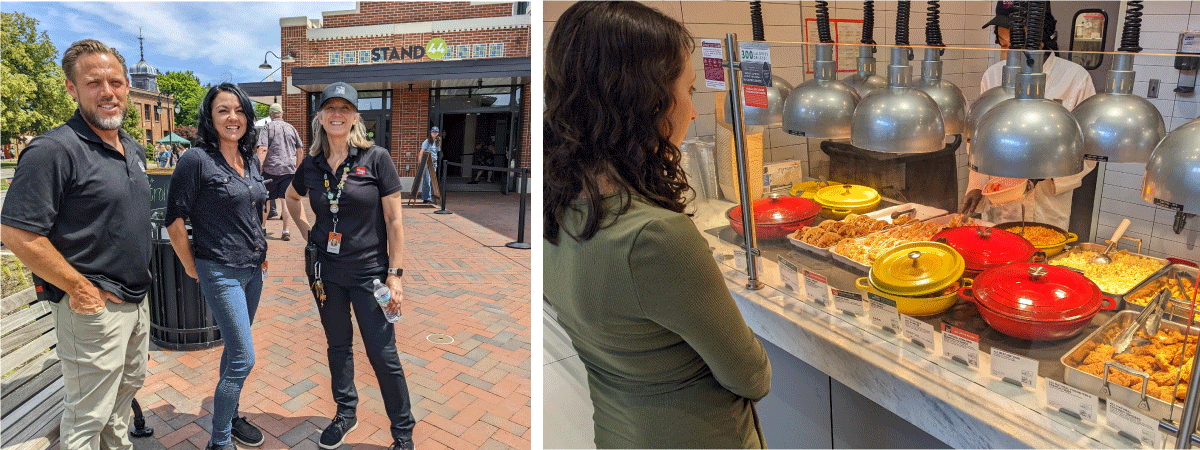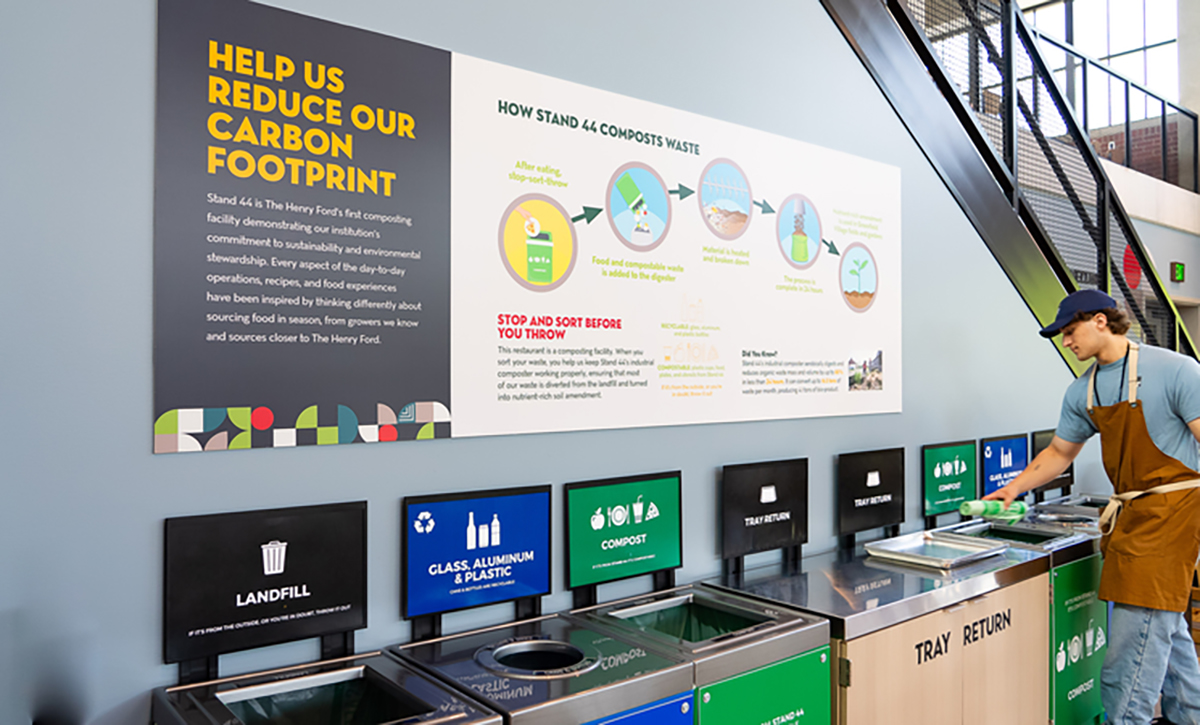Green Restaurants at The Henry Ford

Stand 44 (left) and Plum Market Kitchen (right) at The Henry Ford / Images courtesy of Debra Reid
The Henry Ford includes five food service locations that have been awarded Green Restaurant Association certification. This certification recognizes excellence in eight environmental impact categories. The Green Restaurant association (GRA) says the standards, "reflect over 30 years of research in the field of restaurants and the environment. Thousands of restaurants and hundreds of thousands of restaurant personnel provide the living laboratory for the continued evolution of the GRA standards. The purpose of the GRA standards is to provide a transparent way to measure each restaurant's environmental accomplishments, while providing a pathway for the next steps they can take to improve their environmental sustainability."

Image courtesy of Green Restaurant Association, dinegreen.com
The Henry Ford's certified food service locations are:
- Stand 44
- Taste of History
- Plum Market Kitchen
- Group Lunch Room B Concessions
- THF Catering
Of note about the The Henry Ford's restaurants and the award scores is that Stand 44 is the only GRA 4 Star certified restaurant in Michigan — the highest rating that you can receive in GRA certification — and one of only twenty in the entire United States. Five of those twenty are in one building on California Polytechnic's San Luis Obispo campus. Three more are dining halls on the campus of Towson University in Maryland.

Stand 44’s waste composting method, which makes use of an industrial biodigester, was a key element of the venue's 4 star GRA certification. / Image by The Henry Ford
Earning these recognitions required cross-functional effort across The Henry Ford. The certification categories focus specifically on energy use, water management, waste management, building & furnishings, chemicals, product sourcing, reusables & disposables, and Education & Transparency. The high points of our efforts to secure Green Restaurant certification include:
- Reducing energy consumption by replacing non-energy-efficient equipment with Energy Star dish washers, ranges, and coolers
- Reducing wastewater contamination by installing oil separators in kitchen drains
- Recycling cardboard
- Recycling glass, plastic, and metals through single-stream recycling
- Recycling scrap metal in conjunction with Facilities & Grounds
- Recycling fresh food scraps to Firestone Farm livestock
- Biodigesting waste and returning it to Greenfield Village fields
- Sourcing green or biodegradable products for food service, including take-out boxes, plasticware, and napkins
- Sourcing fresh foods locally to reduce energy used in processing and transport
- Educating about heritage crops on the menu (in conjunction with Greenfield Village presenters and through presentations to Henry Ford Academy students)
While existing efforts have met green standards for the certification, additional opportunities await future attention. These efforts include composting and biodigesting in Henry Ford Museum of American Innovation, eliminating single-use plastics, and more robust recycling of aluminum cans and glass bottles. The Henry Ford aims to become the premier example of large institution-wide efforts to achieve environmentally sustainable practices, educating staff, students, and guests about best practices that lessen individual and institutional impact on the environment.
Lee Ward is Director of Food Service and Catering at The Henry Ford.

